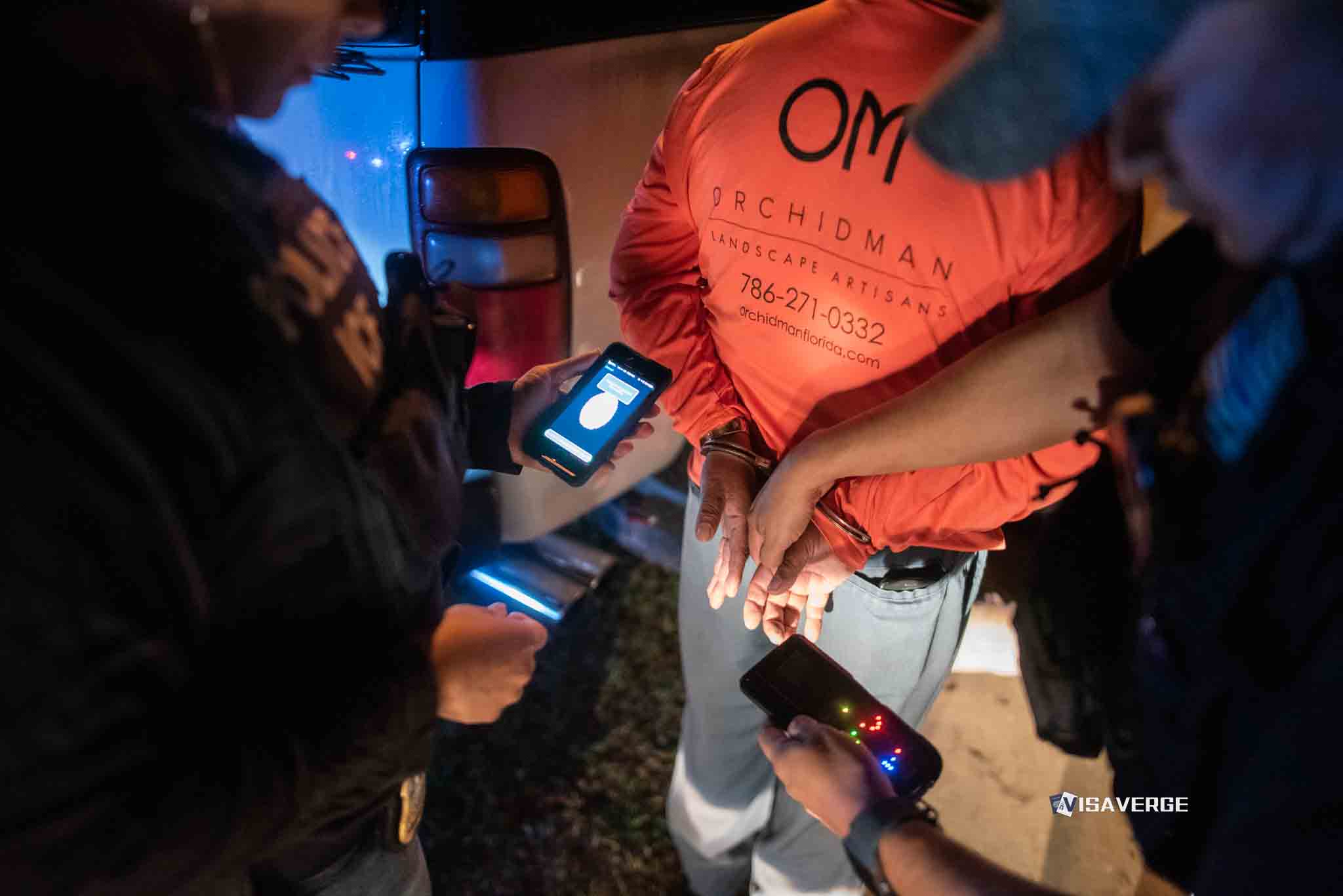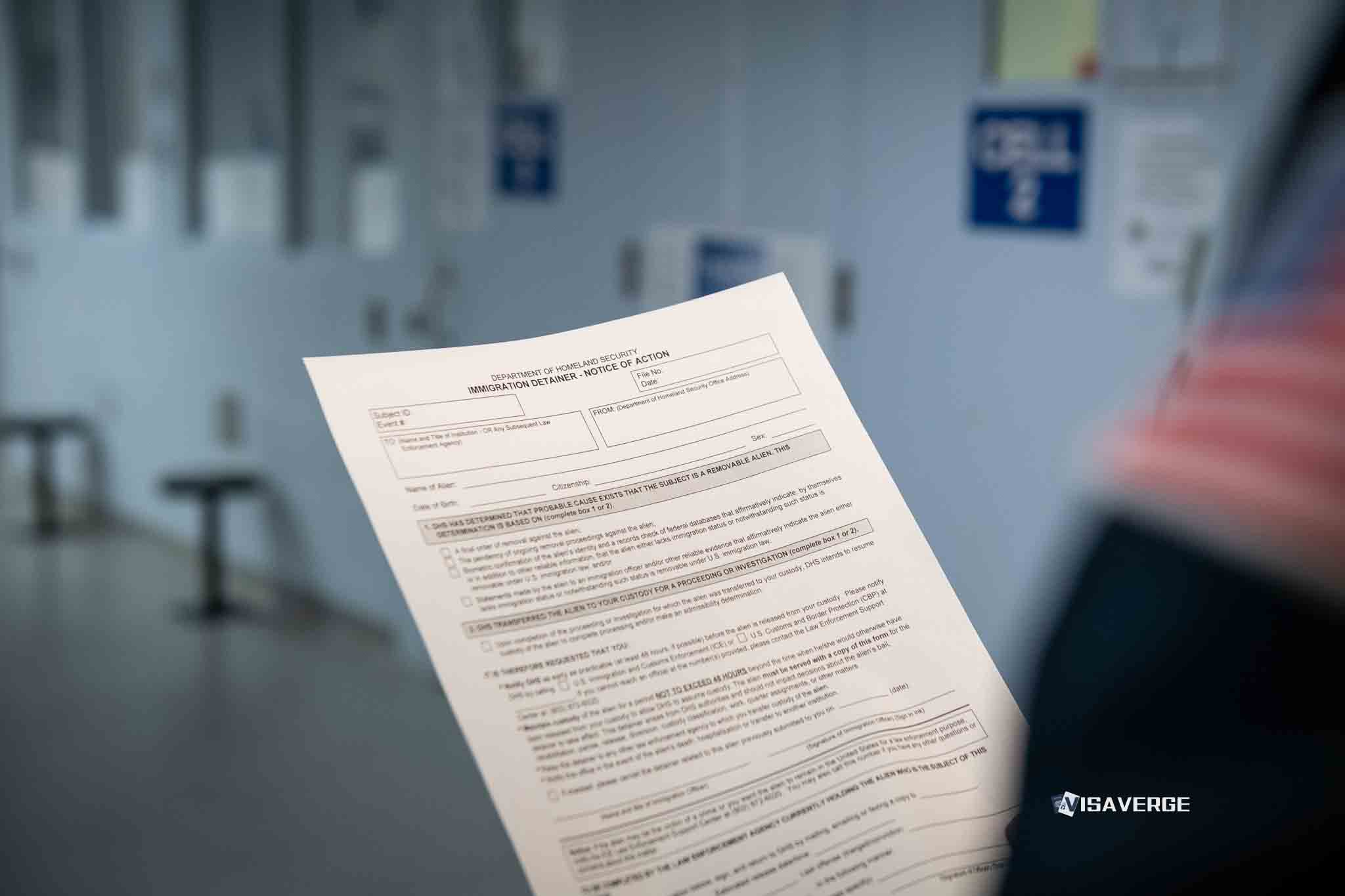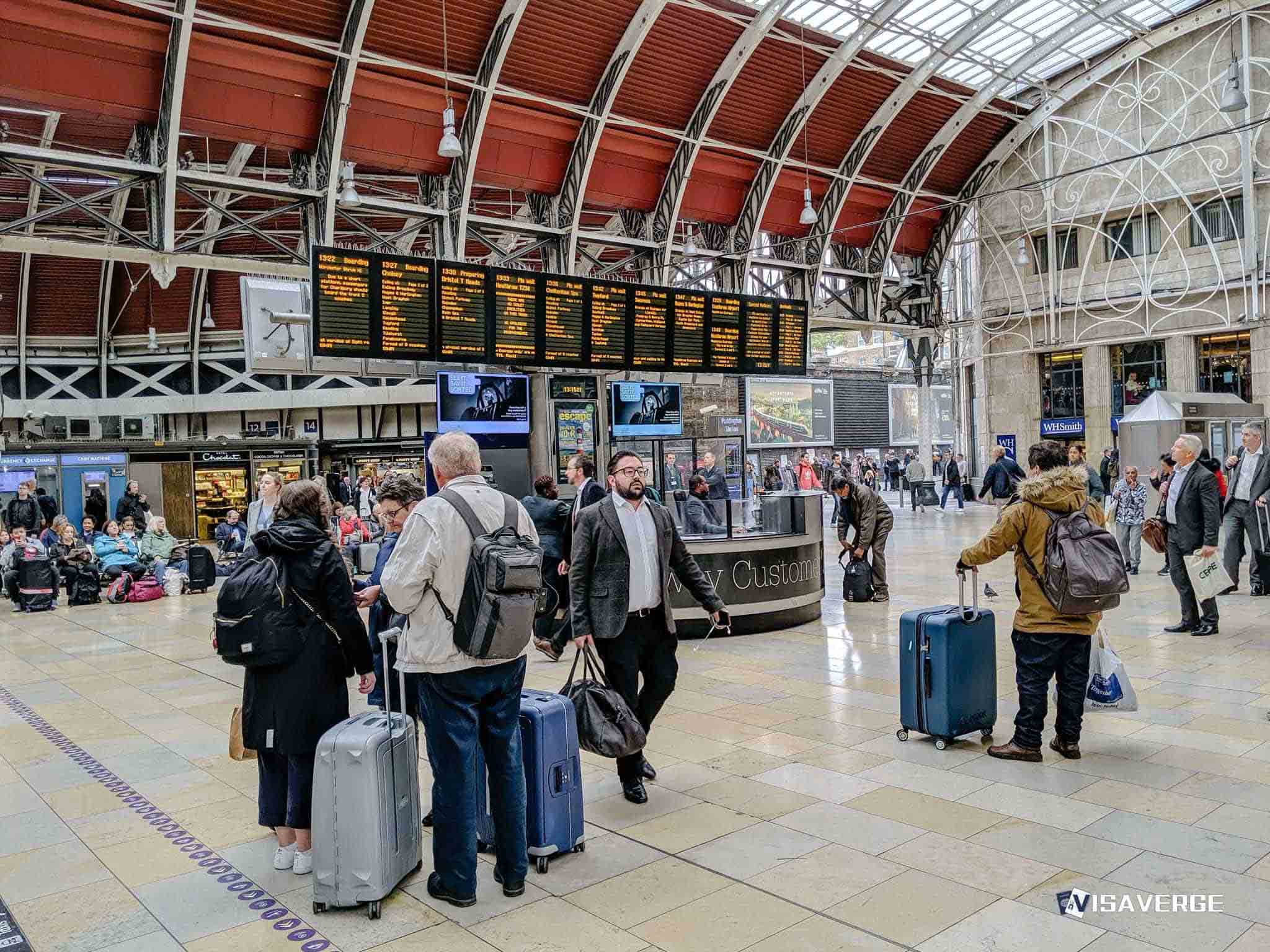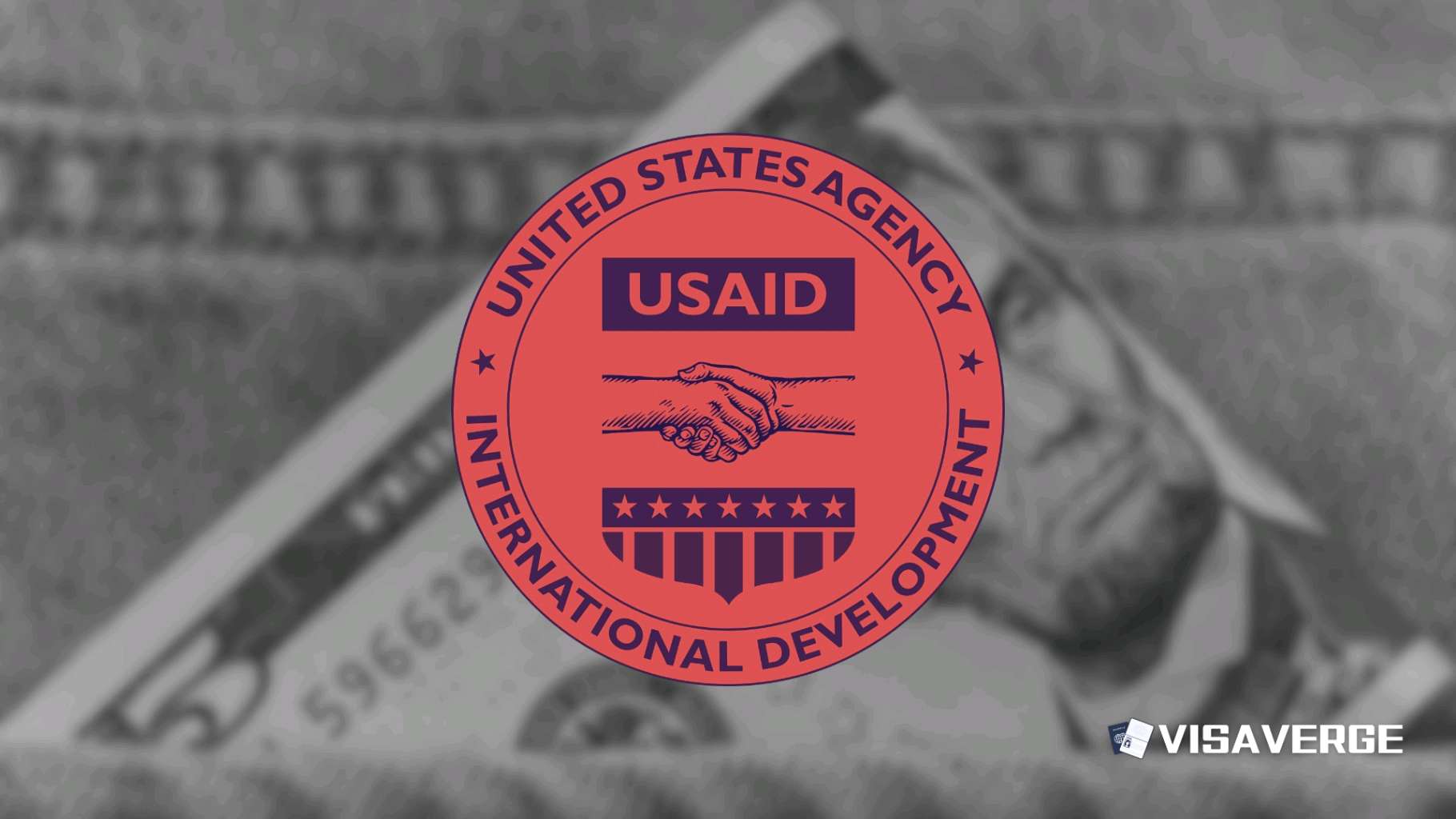Key Takeaways
• On May 27, 2025, CMS introduced rules to restrict federal Medicaid funding for undocumented immigrants’ healthcare.
• The House passed a bill reducing federal Medicaid funding to states covering undocumented immigrants with state funds.
• Approximately 1.4 million people could lose state-funded health coverage by 2034 if changes become law.
The Trump Administration’s Push to Limit Immigrants’ Access to Medicaid: What It Means for States, Families, and Healthcare
In late May 2025, the Trump Administration took major steps to limit immigrants’ access to Medicaid, the public health insurance program for low-income people in the United States 🇺🇸. The Centers for Medicare & Medicaid Services (CMS), the federal agency that oversees Medicaid, announced new rules and oversight to stop states from using federal Medicaid money to pay for healthcare for undocumented immigrants. These actions are part of President Trump’s campaign promises to tighten immigration rules and reduce government benefits for people who are not in the country legally.

This move comes at a time when the House of Representatives has also passed a bill that would cut federal funding to states that use their own money to provide health insurance to undocumented immigrants. These changes could affect millions of people, including children and families, and have sparked debate among lawmakers, healthcare providers, and immigrant communities.
Below, we break down what’s happening, why it matters, and what it could mean for different groups across the United States 🇺🇸.
What Happened: New Oversight and Funding Cuts
On May 27, 2025, the Centers for Medicare & Medicaid Services (CMS) announced new steps to make sure states do not use federal Medicaid money for undocumented immigrants. Dr. Mehmet Oz, the CMS Administrator, said, “Medicaid is not, and cannot be, a backdoor pathway to subsidize open borders.” He explained that states must follow the law and protect taxpayer money.
The new CMS measures include:
- Careful checks of how states spend Medicaid money
- Detailed reviews of states’ financial systems
- Looking at current rules to find and close any loopholes
- Taking back federal money from states that break the rules
These steps are meant to make sure that only people who are allowed by law can get Medicaid benefits paid for by the federal government.
Just days before, on May 22, 2025, the House passed a budget bill that would lower the amount of federal money states get for Medicaid if they use their own funds to give health insurance to undocumented immigrants. This bill is not yet law—it still needs to pass the Senate—but it shows a strong push from the Trump Administration and its allies in Congress to limit healthcare for undocumented immigrants.
Who Can Get Medicaid? The Current Rules
To understand these changes, it’s important to know who can get Medicaid under current law:
- Undocumented immigrants are not allowed to get full Medicaid benefits paid for by the federal government.
- Federal Medicaid money can only be used for emergency medical care for undocumented immigrants who would otherwise qualify for Medicaid.
- Lawfully present immigrants (those with legal status) must usually wait five years after getting their status before they can enroll in Medicaid. However, some states choose to waive this waiting period and let them join sooner.
Some states use their own money—not federal money—to provide health insurance to undocumented immigrants. As of 2025:
- Fourteen states and Washington, D.C. offer some health coverage to undocumented immigrants using only state funds.
- Seven states and D.C. cover some adults, no matter their immigration status.
- All fourteen states cover children, regardless of their immigration status.
The new House bill would punish states that offer any kind of health coverage to undocumented immigrants by lowering their federal Medicaid funding rate from 90% to 80% for people covered under Medicaid expansion.
How Many People Are Affected? The Numbers
The Congressional Budget Office (CBO) looked at what would happen if the House bill becomes law:
- About 1.4 million people could lose health insurance through state-funded programs by 2034.
- These people include those “without verified citizenship, nationality, or satisfactory immigration status.”
- Emergency Medicaid spending for undocumented immigrants was about $27 billion from 2017 to 2023. This is less than 1% of all Medicaid spending during that time, and in some years, it was less than 0.5%.
The Trump Administration has also taken other steps to limit benefits for immigrants, such as:
- Stopping over 1,000 immigrants with criminal records or suspected ties to terrorism from getting Social Security benefits.
- Revoking Social Security numbers for migrants flagged by Immigration and Customs Enforcement (ICE) as suspected terrorists or convicted criminals.
- Imposing daily fines of up to $998 for migrants under deportation orders who do not leave the United States 🇺🇸.
What Are Officials Saying?
Several top officials have spoken out about these changes:
- Dr. Mehmet Oz, CMS Administrator: “We are putting [states] on notice—CMS will not allow federal dollars to be diverted to cover those who are not lawfully eligible.”
- Drew Snyder, CMS Deputy Administrator: “Medicaid funds must serve American citizens in need and those legally entitled to benefits. If states cannot or will not comply, CMS will step in.”
- President Trump: “Not only does it [the House bill] cut Taxes for ALL Americans, but it will kick millions of Illegal Aliens off of Medicaid to PROTECT it for those who are the ones in real need.”
- House Speaker Mike Johnson: Claimed that Democrats who voted against the bill wanted “Medicaid for illegal immigrants.”
- Leonardo Cuello, Georgetown University: Explained, “A state funded program is by definition not Medicaid,” pointing out the difference between federal Medicaid and state-funded health programs.
What Does This Mean for States?
States now face a tough choice. They can:
- Keep offering health coverage to undocumented immigrants using their own money, but lose some federal Medicaid funding for other groups.
- Stop offering this coverage to keep their full federal Medicaid funding.
Some states, especially those with large immigrant populations, may struggle to balance their budgets if they lose federal money. Others may decide to end their state-funded programs for undocumented immigrants, which could leave many people without health insurance.
How Will This Affect Healthcare Access?
If states stop their programs, more than 1 million people—many of them children and families—could lose health insurance. This could mean:
- More people without regular healthcare who may wait until they are very sick to seek help.
- Higher costs for hospitals, which must treat people in emergencies even if they cannot pay. Hospitals may not get paid back for this care, leading to more “uncompensated care” costs.
- Mixed-status families (where some family members are citizens and others are not) could be especially hard hit. For example, a child who is a U.S. citizen could lose coverage if their parents are undocumented and the state changes its rules.
What About Medicaid Waivers?
Some states have special agreements with the federal government, called “Medicaid waivers,” that let them try new ways of providing health coverage. The Trump Administration may stop approving or renewing waivers for states that use them to cover undocumented immigrants, especially under Section 1115 of the Social Security Act. This could affect states like New York and California, which have used waivers to expand coverage.
For more information about Medicaid waivers and how they work, you can visit the official Centers for Medicare & Medicaid Services Medicaid Waivers page.
Wider Immigration Enforcement Actions
These Medicaid changes are part of a bigger set of immigration enforcement actions during President Trump’s second term. Other steps include:
- An agreement between the IRS and ICE that lets ICE use taxpayer information to find people for removal.
- A rule requiring undocumented immigrants to give their fingerprints and personal information to ICE.
- A new CBP Home app with a self-deportation feature.
- A Presidential Memorandum signed on April 15, 2025, to stop undocumented immigrants from getting Social Security Act benefits.
What’s Next? The Future of Medicaid and Immigrant Healthcare
The Trump Administration is urging all states to quickly check and update their systems to make sure they follow federal law. CMS says it will keep a close watch and may take back federal money from states that do not comply.
Several things could happen next:
- Expanded Enforcement: CMS may increase checks and take stronger action against states that do not follow the new rules.
- Legal Challenges: States and advocacy groups may go to court to fight these changes, especially if they believe people’s rights are being violated.
- Medicaid Waiver Reviews: The Department of Health and Human Services (HHS) may end waivers for states that use them to cover undocumented immigrants.
- Congressional Action: The House bill still needs to pass the Senate. The final law could change, depending on what senators decide.
What Are the Broader Implications?
These changes could have a big impact on:
- Immigrants: Many could lose access to health insurance, making it harder to get care when needed.
- States: Especially those with large immigrant populations, may have to make tough budget choices.
- Hospitals and Healthcare Providers: Could see more patients without insurance and more unpaid bills.
- Mixed-Status Families: U.S. citizen children and legally present immigrants could lose coverage if states change their rules.
- Federal-State Relations: The federal government is putting more pressure on states to follow its rules, which could lead to more conflicts.
What Should Stakeholders Do Now?
- States should review their Medicaid programs and funding sources to make sure they follow the new federal rules.
- Healthcare providers should prepare for possible increases in uninsured patients and higher uncompensated care costs.
- Immigrant families should stay informed about changes in their state’s health coverage rules and seek help from local organizations if they lose coverage.
- Advocacy groups may want to monitor legal developments and support affected families.
Conclusion and Practical Steps
The Trump Administration’s actions on Medicaid and immigrant healthcare are already changing how states provide health coverage. If the House bill becomes law, even more people could lose insurance, and states may have to make hard choices about their budgets and public health programs.
For those affected, it’s important to:
- Check your state’s Medicaid rules regularly, as they may change quickly.
- Contact local health departments or immigrant support organizations for help if you lose coverage.
- Stay updated on legal challenges and new laws that could affect your access to healthcare.
As reported by VisaVerge.com, these changes are part of a larger trend of stricter immigration enforcement and reduced access to public benefits for undocumented immigrants. The situation is still developing, and more changes may come as the Trump Administration continues its efforts to reshape immigration and healthcare policy.
For the latest official information on Medicaid eligibility and immigrant health coverage, visit the Centers for Medicare & Medicaid Services Medicaid Eligibility page.
By keeping informed and seeking help when needed, families and individuals can better prepare for these changes and protect their health and well-being during uncertain times.
Learn Today
Centers for Medicare & Medicaid Services (CMS) → Federal agency overseeing Medicaid, responsible for implementing healthcare rules and funding guidelines.
Medicaid → A federal and state program providing health insurance to eligible low-income individuals and families.
Federal Medical Assistance Percentage (FMAP) → The share of Medicaid costs paid by the federal government to states, varying by state.
Medicaid Waivers → Special federal approvals allowing states to try new ways of delivering Medicaid services outside standard rules.
Undocumented Immigrants → People residing in the U.S. without legal immigration status or official authorization.
This Article in a Nutshell
The Trump Administration’s 2025 Medicaid changes tighten eligibility for undocumented immigrants, targeting state programs. New federal oversight limits funding, risking millions losing coverage. States face a choice: stop coverage or lose federal money. Healthcare access may worsen, especially for children and mixed-status families, amid intensified immigration enforcement policies.
— By VisaVerge.com













